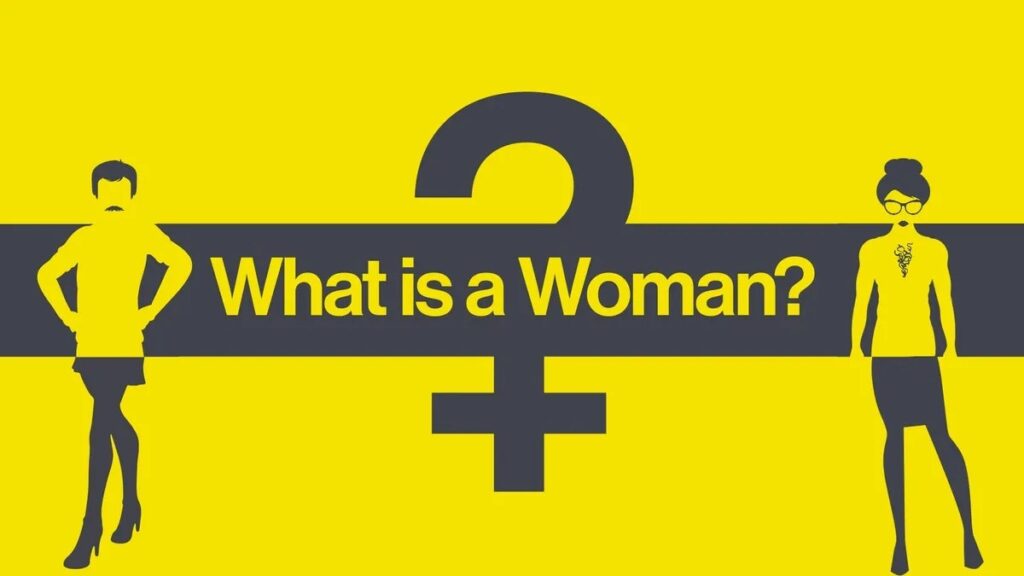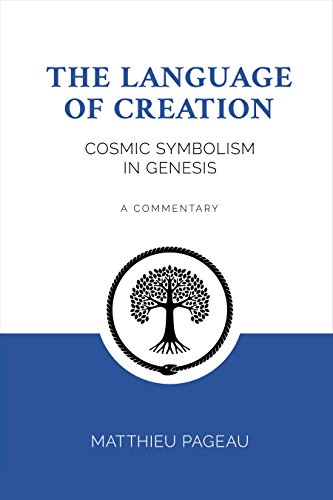July 2023
A World Without Wombs
Matt Walsh’s appearance on The Joe Rogan Experience was interesting in many respects. Rogan, a self-proclaimed progressive, had Walsh on to talk about his important documentary What Is a Woman? Despite his progressiveness, Rogan is a vocal opponent of Wokeness, particularly the trans movement wherein biological males are invading traditionally female spaces with little or no regard for the safety and well-being of those females. The most obvious example is the introduction of biological males into women’s sports, and the predictable series of catastrophes for women and girls which have ensued from this invasion.

For the first half of the interview (which runs roughly 3 hours), Rogan and Walsh discuss the film and the importance of answering the question: What is a woman? That such a question must even be asked, they both seem to agree, is truly an indictment of our times. But for the last hour of the interview Rogan turned the tables on Walsh, a devout Catholic, and peppered him with questions regarding gay marriage. “Why can’t two people who love each other just get married,” Rogan reasoned. “Gay marriage doesn’t negatively affect my marriage. What’s the big deal?”
Walsh did an admirable job of attempting to counter Rogan’s attacks, but later admitted that he wasn’t prepared to discuss the topic. Rogan was relentless as the discussion lasted for nearly an hour, and Walsh’s repartees never put the issue to rest. It is a difficult thing to engage in a debate for which you are not prepared, and I doubt that I could have done any better than Matt Walsh did. This is not an indictment of his performance on Joe Rogan’s show.
Why does biological sex matter in sports but not in marriage?
Since the show aired, I’ve had some time to reflect on Rogan’s questions, and I think I would counter his with some of my own: Why does biological sex matter in sports but not in marriage? Is marriage not a greater matter than sport? Why should biological sex be subordinated to desire in human coupling but not in human competition? If the biological differences between men and women are enough to demand their segregation in sports, then why aren’t the biological and sexual differences between men and women enough to demand their integration in marriage? It is only because of this differentiation, after all, that children can be conceived and the human race advance another generation.
Rogan’s answer to the questions above would probably go something like this: Men are, on average, bigger, stronger, faster, and more powerful than women, on average. Men have a biological advantage over women when it comes to the physical demands of most sports. If there were no women’s sporting divisions, there would be few, if any, women in sports at all. It is the crucial, and significant, biological differences that make it unjust for men to compete in women’s sports.
I heartily agree! But isn’t marriage itself founded on this same biological difference? After all, it is more likely that a female will become the heavyweight boxing champion of the world than that a male will conceive and bear children with another male. The former may be exceedingly unlikely, but the latter is physically impossible. Sexual difference is the basis for marriage in the same way that it is the basis for Title IX and women’s sports. In marriage, sexual difference calls for the integration of the sexes, whereas in sports it demands their segregation. Marriage, after all, would not exist without child-bearing and child-rearing. Humans learned long ago, though we pretend to forget such things today, that it takes one male and one female to create and raise children.
What is sex?
And if the question, “What is a woman?” is so incisive, what about the question, “What is sex?” (By this I do not mean biological sex, but rather sexual intercourse.) How would Joe Rogan answer that question? The word “woman” would not be as meaningless as it is today if the word “sex” had not already been evacuated of all meaning. For it is now bigoted to say that sex is the genital union of a human male and a human female. If two males can have sex then it must follow that the female sexual organ is unnecessary for sex. In the same way, if two females can have sex then logic (and current cultural taste) demands we admit that the male sexual organ is also unnecessary for sex. And if two post-operative trans people can have sex, then sex requires neither the male nor the female organ, but merely their surgically-constructed substitutes. And if a person can have sex with a robot or a doll, as our culture now declares they can, then it must be the case that sex doesn’t even require the presence of two humans.
So, what then, is sex? Can our culture really say anything other than this: consensual titillation? To say anything beyond this is bigotry. We cannot say that a female and her body must be involved lest we offend gay men. We cannot say that a male and his body is necessary lest we offend lesbians. We cannot say that one of either the male or female sexual organ be present lest we offend trans people. And on we go. To speak of sex in any definitive or objective way is bigotry. Sex is both nothing and everything at the same time.
This is what it means to fall into idolatry: Your idol becomes simultaneously everything everywhere and nothing anywhere. It is evacuated of all meaning even as it means everything to you. It is vanity; it is identity. It is meaningless; it is all that there is. In idolatry both the idol and the idol-worshipper become their basest selves, as St. Paul warned us, which is why the only workable definition for sex in our culture—consensual titillation—is so absurd and crude, describing nothing whatsoever. Only when sex is lifted to the highest place can our understanding of it become so low.
To say that our culture has made an idol of sex is to say the most obvious thing in the world. But we now live in the aftermath of that idolatry, suffering under its fallout, and the consequences are dire. Gay marriage can only arise after sex has been stripped of meaning, and this is, first and foremost, fundamentally bad for women. To evacuate all meaning from sex leads predictably to the erasure of women, and soon to all people. Today we cannot define what a woman is; tomorrow it will be children. The decoupling of sex from procreation is the uncreation of humanity. We are watching it happen before our very eyes.
Today we cannot define what a woman is; tomorrow it will be children.
What is a woman? What is sex? What is a child? When we pretend to forget from where children come we will disdain their humanity. When we pretend to forget what a woman is we will despise adolescent girls for refusing to take off their clothes in front of biological males. When we pretend to forget what a child is we will make them into sexual objects in our advertisements. We live in a world without wombs, and so we have debased ourselves and our offspring.
Joe Rogan is right to be appalled by the transgender ideology, but the erasure of women started long ago. The ideology of the sexual revolution, which I suspect Rogan cannot yet bring himself to repudiate, continues its quest to erase all of humanity nearly unabated. Most of the Christians I knew in my formative years have given themselves over to it. Few are left to resist. But, for the sake of humanity, we must. If it has erased women, it can erase children. And if it erases children, then we are all damned. We are at the wall, now. There is nowhere left to retreat. It is time to start pushing back or die trying.
Don’t be cowed into silence by those who call you a bigot, for it is you who loves humanity, not those beholden to the sexual revolution, which is only the cultural manifestation of humanity’s self-hatred. Do not be ashamed of the order which God has given to his creation, nor of the high place upon which he has set human beings as his image-bearers, for he has done this as an act of love for us and the whole universe. Instead, live into that high place with wisdom in thought, courage in action, and truth in speech. Return the hatred of those who hate God and humanity with the love of God as displayed at the cross of Jesus Christ. For God is this love, and it is by this love that he conquers evil. Do not lose hope, for all of humanity’s enemies have already been defeated in the love of Jesus Christ.

What I’m Reading
The Language of Creation by Matthieu Pageau

As a seminary student I used to daydream of St. Paul travelling through time and space to 21st century America. I imagined meeting him as he stumbled, dazed and bewildered, down the middle of the road. Of course, the responsibility of caring for him would fall to me. Through an arduous process of trial and error we would learn to communicate with one another, and eventually I would solicit his advice on modern American Christianity. In my mind, his critique would be scathing and his praise would be faint. His opinions aligning remarkably well with my own. (Funny how that goes.) But the deeper I dove into this daydream, the more futile the mental exercise became. I soon realized that the language barrier is not the only that we would have to overcome in order to communicate. No, the gulf between ancients and moderns is much deeper than language. It is in the very way that we conceive of the universe.
Matthieu Pageau’s fascinating book, The Language of Creation, is a thorough exploration of just how differently we moderns think of the universe than the pre-modern people who wrote the Bible. We look at the world and see atoms, facts, and material reality. The ancients looked at the world and saw wisdom, meaning, and spiritual reality. We comfort ourselves with the reminder that the people who wrote the Bible didn’t know what we know now. But the reverse is also true. We have forgotten what they knew well.
Pageau’s thesis is this: We must learn “to see reality not as a heap of meaningless atoms and energy, but as the physical expression of metaphysical truth.” (4) The universe is layered, but the scientific worldview only gives us access to one: the material. As pragmatic and insightful as Science is, it cannot give us the whole story. The insufficiency of the materialistic perspective is itself a great danger, a sort of modernized Fall, because we have decoupled physical reality from spiritual truth. We have unchained earth from heaven. The fact that we don’t see spiritual truths in physical reality anymore doesn’t mean they aren’t there; it simply means that we’ve stopped looking.
The universe, according to the ancients, is fundamentally comprised of “heaven” and “earth.” But even these terms are confused for modern readers because they are bound up in concepts like the afterlife, the sky, space, and our particular planet. The modern mind wants to place heaven and earth on a map, but this is not how the ancients thought. For them, heaven and earth are two aspects of the universe, each providing a vital function for the other. “In the Bible,” writes Pageau, “raw ‘earth’ refers to matter without meaning, and pure ‘heaven’ refers to spiritual meaning without corporeal existence.” (18) But when the two are joined together we get knowledge, because spiritual truth is expressed in material reality. “Spiritual reality informs corporeal reality with meaning and purpose….Matter expresses spirit by making it visible and tangible in the universe.” (19)
If earth didn’t have heaven, then the entire universe would have no meaning. If heaven didn’t have earth, then meaning could never be expressed. Knowledge is only possible when meaning, which comes from heaven, has a material vehicle, provided by earth, through which it can be expressed. There can be no life apart from the union of heaven and earth.
In one example, Pageau explains the cosmic significance of the Law of Moses. “Mosaic Law is more than just a means of preserving social order. It is also a way to express a spiritual identity….Every law is a specific ramification of God’s identity at the level of human interactions.” (81) In other words, Israel doesn’t follow the Torah because that’s the best way to maintain law and order. Rather, Israel keeps Torah because Israel is the faithful incarnation of the wisdom of YHWH. Pragmatism was hardly a top-level concern for ancient communities. Manifesting wisdom and knowledge, on the other hand, was vital to their existence.
My take on the book is mixed. On the one hand, I completely agree that we will never understand the Bible (or any ancient text) if we bring only the modern, scientific perspective to it. The Scriptures were written thousands of years before the scientific revolution. Nobody then thought as we do now. Pageau has it correct in this regard. On the other hand, while his thesis is interesting, I have no way of knowing that he has it right. He does not cite any other sources, so we only have his word to go on. That doesn’t mean that he’s wrong, only that he has made a fascinating contribution to a conversation we ought to be having.

Before I Forget
We’re releasing Morning Devotions videos three days a week. These videos are all about ten minutes long, and they’re extremely chill, for lack of a better word. This is intentional, as they are both recorded in, and intended to be watched during, the early morning hours. They’ll be hard to watch in the middle of the day, but my hope is that they’ll be just the right speed for when you first wake up. The idea is that these will serve as either a supplement to your current devotions or as a motivation to do your own. We are also hoping to get more people involved in doing them. If you’d like to submit a video, check out the video submission instructions here.
With the launch of the website last month, we published our first series of writings called How to Have a Relationship with an Invisible God. There are four articles in all, and we hope that you find them fruitful as you attempt to have a relationship with the God whom you cannot see.




POST COMMENT